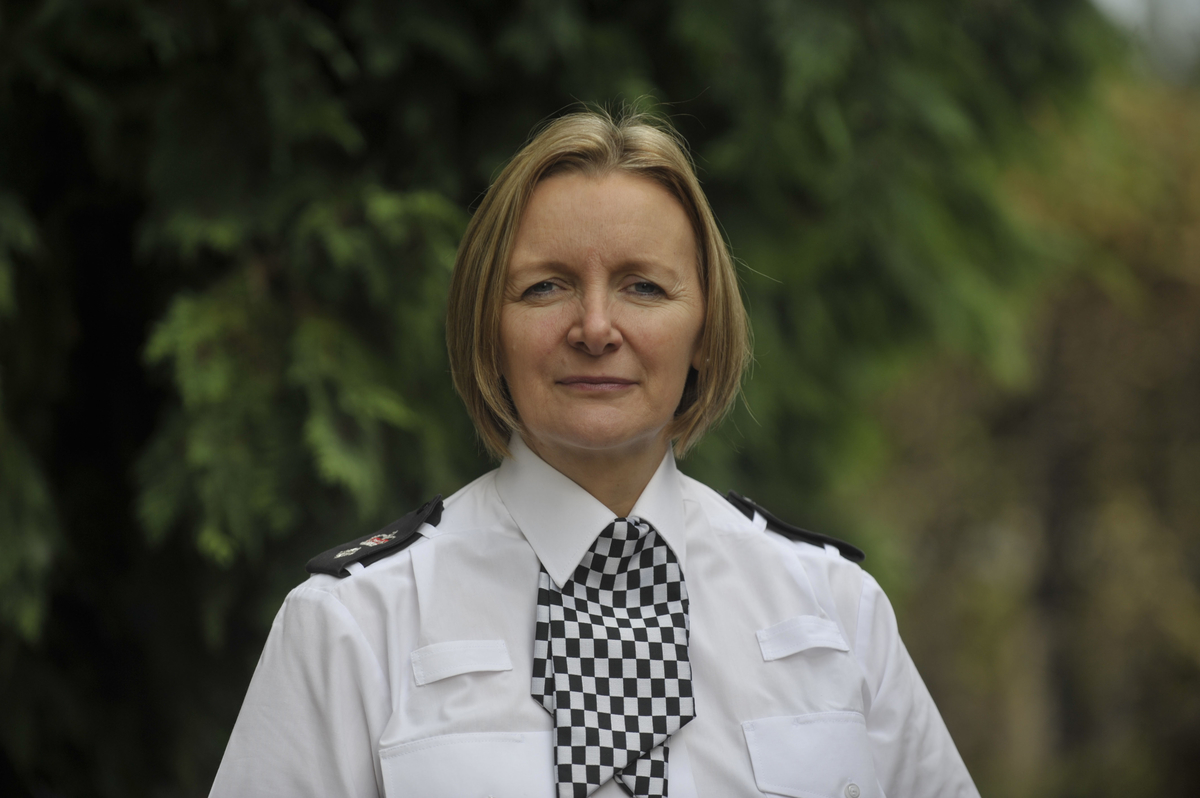Will the public wave bye bye to Bobbies on the Beat?
CONTINUED cuts to police budgets could lead to a future where the only officers the public see are rushing from one emergency call to the next, the president of the Police Superintendents’ Association has warned.
Irene Curtis (pictured) outlined her fears at the association’s annual conference – however CC Jon Murphy, who holds the national crime portfolio, told the conference “the vast majority of the public don’t need a visible police presence”.
Ch Supt Curtis emphasised how police intelligence – crucial in preventing terrorist attacks and serious organised crime – could be missed if links between the public and neighbourhood officers break down.
Ch Supt Curtis said: “Neighbourhood policing is a core function of policing in this country – but it risks becoming a victim of cuts.
“Neighbourhood police officers develop a very good understanding of the communities they police and the issues they face. They also build up trust with those communities.
“If those officers are not there, we risk valuable intelligence being missed.
“People will not pick up the phone and ring the police about something they think is minor but will say it to a neighbourhood police officer who will realise it is a valuable piece of information which may help prevent a potentially dangerous incident.”
The 43 forces in England and Wales have had to absorb a 20 per cent, or £2.4 billion reduction in their Whitehall funding since 2010, according to the association. Some 15,000 police officer jobs have been lost since the last general election, while a total reduction of 31,600, including police staff, is planned by March 2015.
Ch Supt Curtis added: “We cannot let the service evolve to one where all the public see are officers driving from one emergency call to the next – policing in this country means much more than that and chief constables need to make some difficult decisions to prevent this from happening.”
Mr Murphy, chief constable of Merseyside Police, told the conference he believed that the service had to re-examine itself in a time of austerity – and there was a tendency for a “political and public obsession” with police visibility “irrespective of actual neighbourhood demand in many cases”.
CC Murphy asked: “How long can we sustain this style of policing?
“Which is more important – deploying resources in big hats or high visibility jackets to make the public feel safe or focusing on what is less visible to the public but actually does protect them from serious harms such as child sex abuse, cyber crime or serious organised crime?”
He said: “I don’t see firefighters, paramedics or nurses walking the streets in case somebody becomes ill. Neighbourhood policing is not the preserve of neighbourhood teams – it is about our relationship with the public.”


Comments are closed.